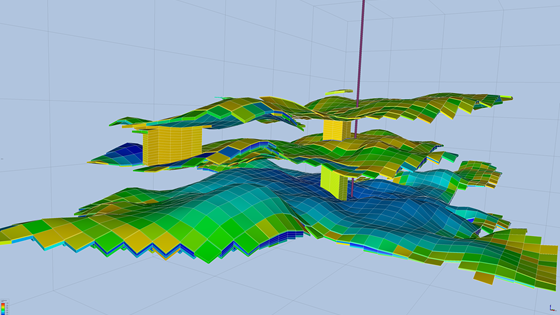
UrbanMine: Institutionalization processes in times of circular green transitions
Explore institutional, political, and business frameworks for using mineral waste as a resource in green transitions.

Explore institutional, political, and business frameworks for using mineral waste as a resource in green transitions.

VIPCOAT seeks to make the development and production of corrosion protection technologies more sustainable, economical and faster.

Reducing atmospheric GHG through offshore ocean seaweed farming and conversion to climate positive products or solutions.

As salmon farm sites are moved further offshore and to more exposed locations, working conditions are increasingly challenging. Farmers therefore aim to automate certain operations to facilitate safer working conditions.

The objective of the project is to assist in development of cost-effective tools for measurement of flow rate in oil wells, and hence get improved utilization of wells.
The scarcity of marine proteins and lipids is considered to be the greatest challenge needing to be addressed in order for the aquaculture sector to continue to grow in a sustainable manner. In COPREST, CFEED and SINTEF Ocean will explore the...

Optimizing marine battery operations using 6 years’ operational data from two commercially operating vessels.

Technology aim to development of technology for complete gas conversion and energy transfer using energy storage materials between different processes.

A new virtual centre concept enables more flexible organisation of air traffic control operations.

Contaminant of emerging concern (CECs) such as antibiotics, pathogens and antimicrobial resistant (AMR) bacteria in water bodies associated to intensive fish and inland animal farming, represent a great threat to the environment and human health. The...

The goal of Allotherm is to discover and realize new alloy systems with superior thermoelectric (TE) properties to dramatically enhance TE waste heat harvesting.

ACROSS aims to combine traditional High-Performance Computing (HPC) techniques and workflows with Artificial Intelligence (AI) and Big Data analytic techniques to enhance productivity and efficiency.

The ambition of the CC+ Centre is to explore, develop and test climate positive technologies with special focus on industrial solutions.

CCS Midt-Norge is an industrial cluster that investigates the opportunities and challenges related to CO2 capture and storage (CCS) for companies in mid-Norway.

In the project, research institutes cooperate with companies to make advanced walls and windows with new or improved properties and a small environmental footprint.

The competence building project (KSP) MultiFlow SUITE contributes to digitalization of the Norwegian Continental Shelf. Large amounts of data will be exploited in development and training of digital tools that reflect how gas, oil, and water flow...

NordSalt will assess the nature, diversity, extent and long-term changes of Nordic coastal marsh habitats, to evaluate their role in climate regulation and to assess their vulnerability and change in ecological structure and functions under future...

Small and medium-sized companies often do not have the capacity or competence to develop their ideas into specific R&D projects. In collaboration with Sparebank1 SMN, SINTEF offers small and medium-sized companies in Mid-Norway assistance with green...